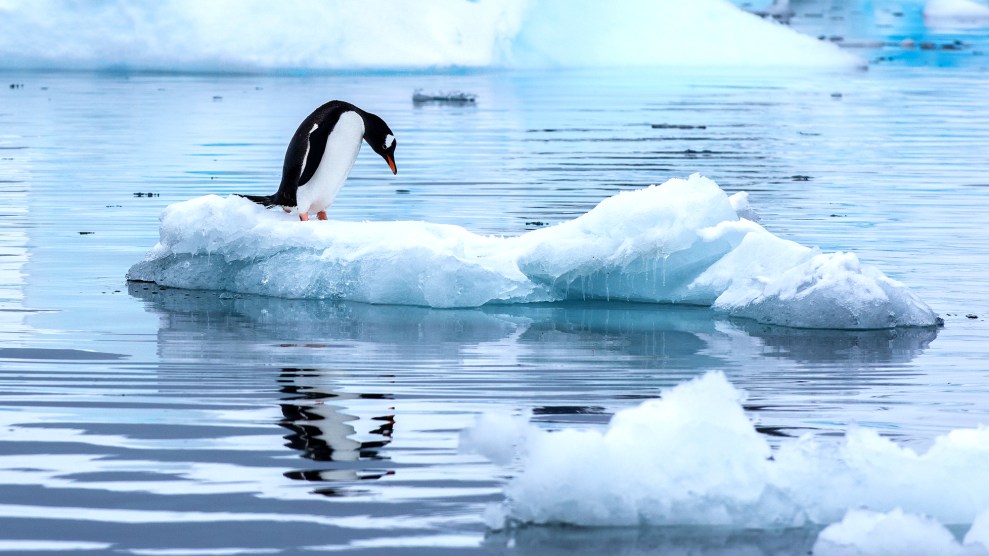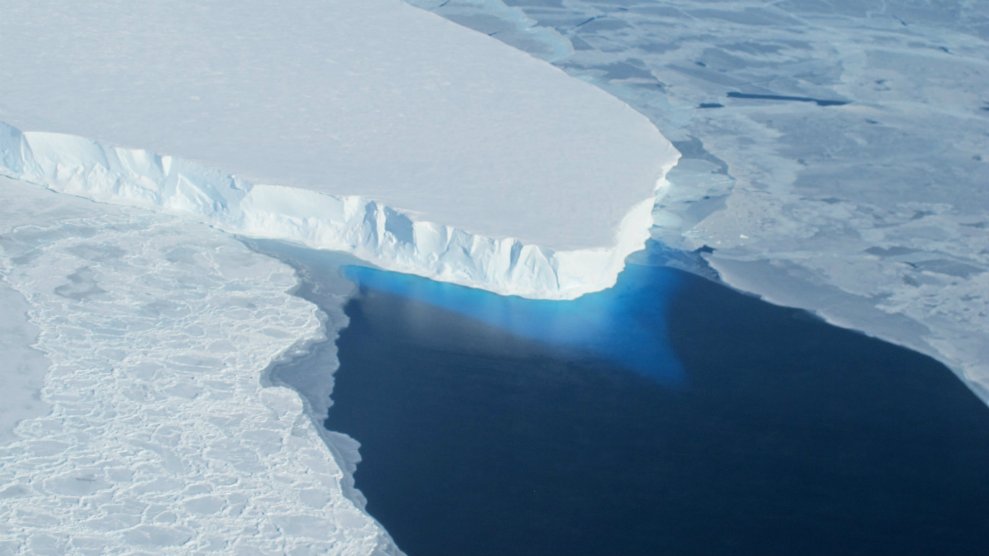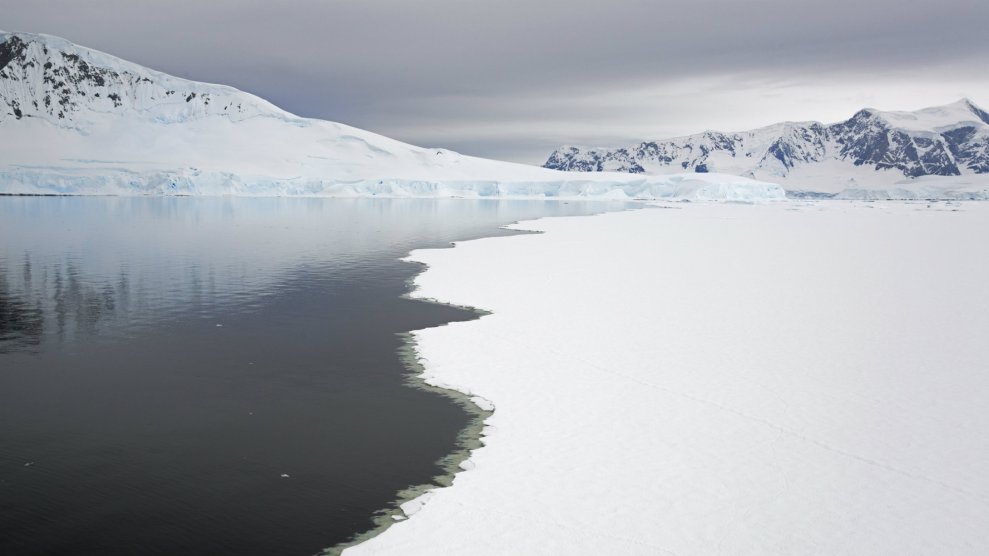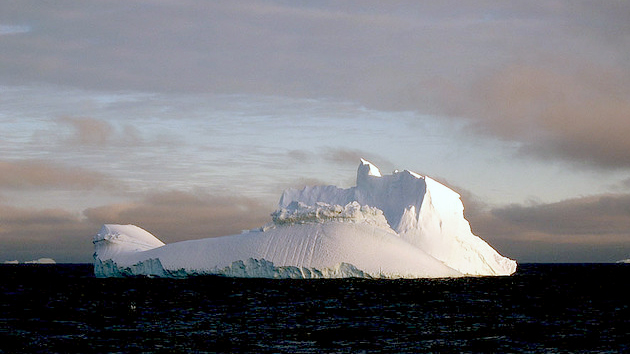
Ray Hems/Getty
While you were drowning in this week’s impeachment, State of the Union, and election news, scientists were sounding yet another climate alarm: Antarctica just set a new record temperature. On Thursday, a historical high for the continent of 65 degrees Fahrenheit (18.3 Celsius) was measured by Argentinian meteorologists at the Esperanza base, on the tip of Antarctica’s Trinity Peninsula, beating the previous record of 63.5 Fahrenheit (17.5 Celsius) set in March 2015.
“It’s a sign of the warming that has been happening there that’s much faster than the global average,” Professor James Renwick, a climate scientist at Victoria University of Wellington, told the Guardian. “To have a new record set that quickly is surprising but who knows how long that will last? Possibly not that long at all.”
18.3°C! – new highest temperature recorded for continental #Antarctica, yesterday at Esperanza Base, the northern tip of the Antarctic Peninsula, 63°23′S; previous record was 17.5°C in 2015 also at Esperanza @SMN_Argentina; records began at the station in 1961, pic Nestor Franco pic.twitter.com/1qhbv0rDQj
— The Antarctic Report (@AntarcticReport) February 7, 2020
This is, how do I say it? Not good. The Washington Post puts the news in its disturbing broader context:
The Antarctic Peninsula, on which Thursday’s anomaly was recorded, is one of the fastest-warming regions in the world. In just the past 50 years, temperatures have surged a staggering 5 degrees in response to Earth’s swiftly warming climate. Around 87 percent of glaciers along the peninsula’s west coast have retreated in that time, the majority doing so at an accelerated pace since 2008…
“[This record] doesn’t come as any surprise,” wrote Eric Steig, a glaciologist studying climate change at the University of Washington. “Although there is decade-to-decade variability, the underlying trend across most of the continent is warming.”
He says this record will probably be broken again in the not-so-distant future.
The news came just days after the European Union’s Copernicus Climate Change Service announced January 2020 was the warmest January on record.
















